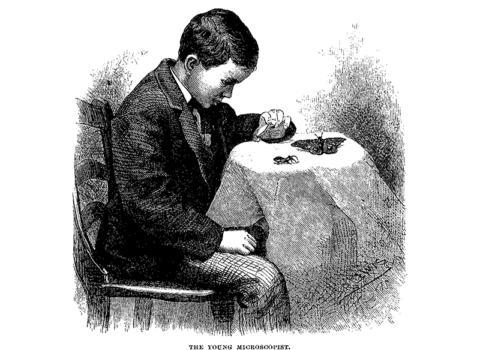Publishing John le Carré
What is the role of a publisher? What impels him or her to get up in the morning and go to work? Normally, I avoid these kinds of difficult questions, because my tendency is rather to immerse myself in the demands of everyday life. I like to concentrate on the task of the day, and you’ll often find me in bookstores, in front of airport newsstands, or in drugstore chains, fiddling with the inventory to ensure a decent distribution of the magazine I’ve been publishing for the past thirty-seven years.
That having been said, I sometimes throw myself into a particular obsession that doesn’t interest many other people; it’s my way of finding relaxation and respite in my work. So it was that fifteen years ago I set out in search of the very private British writer John le Carré. The memory of my ambition to publish le Carré, to collaborate with him, came back to me when I heard the recent news of his death. The loss of this man, even if he wasn’t a close friend, struck me with unexpected intensity. I immediately began digging into our correspondence, to get a better understanding of why he had meant so much to me and how he has motivated my career as a publisher.
I was a passionate reader of le Carré because of my elder sister, Solange, who had recommended his work to me in the 1970s. At the time, she was dancing with the West Berlin opera ballet company, and, just like the characters in The Spy Who Came in from the Cold, had made the journey to and from communist East Berlin on the U-Bahn several times. Like thousands of teenagers, I succumbed to the spell of that worldwide bestseller, not only because of the exciting story but also because of the characters compellingly embodied by the actors Richard Burton and Claire Bloom in the film version of the novel. That John le Carré was the pen name of a former British spy with a real identity—David Cornwell—never much concerned me, for his fraught, penetrating stories transcended the spy-fiction genre; it would be more apt to consider le Carré as the preeminent Cold War novelist, who offered striking insights into the pitilessly bureaucratic and often amoral state of the infernal, pointless struggle between capitalism and communism.
His anti-American bias (the American characters he portrays are frequently assholes) didn’t extend to sympathy for Moscow and its totalitarian system, though. When I traveled from Paris to Prague in 1983, I deliberately took the train because I wanted to pass through the Iron Curtain overland, to feel the fear of being arrested, and to undergo a search by officers of a police state—which is to say, I wanted to experience something like what happens in one of le Carré’s novels. I wasn’t disappointed when the police got on my train at the border, nor after arriving in Prague, where my future wife and I found that the same man was following us everywhere. Remaining silent, or censoring our conversation because the cops were listening (in our hotel room or in the American diplomat’s apartment where we met some dissident Czech writers), and communicating with people face-to-face rather than by telephone—I had learned all those maneuvers by reading le Carré’s fiction.
But I wondered if his creative power would survive when the Berlin Wall fell in 1989 and the Soviet Union collapsed in 1991. Indeed, le Carré did prove himself to be a great writer, because his post-communism output was even better and just as relevant as the works he had produced when he was at the height of his career as a writer of spy thrillers. With subjects ranging from the Israeli–Palestinian conflict to corruption in the pharmaceutical industry, le Carré became, over and above his literary standing, an influential voice in international politics—like Graham Greene, with whom he had a mutual admiration.
A significant turning point occurred in 2003, when le Carré publicly declared his opposition to the mendacious invasion of Iraq by President George W. Bush and British Prime Minister Tony Blair. I recognized in his stance a convergence of interests and a commonality of disgust. Harper’s Magazine, as an institution, and I, as a journalist, had opposed the invasion as well, so if le Carré was both a literary and a political kindred spirit, why hadn’t he written for Harper’s since 1965? In January 2006, I sent him a letter, pleading my case. More than a month passed, and then I received a charming, handwritten response that contained sufficient encouragement for me to continue my pursuit. Our epistolary relationship, which consisted exclusively of letters written on paper, flourished and eventually led, seven years later, to the publication in Harper’s—before the official release and with an afterword by le Carré—of the first chapter of his novel A Delicate Truth, his tour de force against Bush/Blair’s dirty “anti-terrorist” war. Was it a literary success, in spite of its political rage? When it was published in France, Alexis Liebaert, writing in the weekly news magazine Marianne, welcomed the return of the “great” novelist and asked the question: “What if I say that this breathless, vengeful book is le Carré’s best novel?” Delighted with this affirmation I sent le Carré a clipping of the article. His typically humble reply: “The French seemed to have forgotten me for a while . . . but this time round I’m getting friendly attention.”
We finally met in 2015, at a Cornwell family luncheon in London. More recently, we discussed the possibility of his writing an article critical of Boris Johnson and Brexit. In this instance, my publishing quest, alas, was not to be fulfilled. But knowing John le Carré helped me to understand why I became a publisher and why I love what I do.



